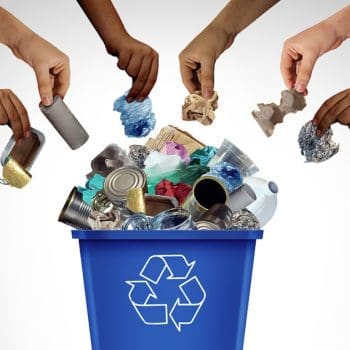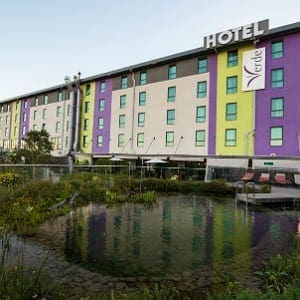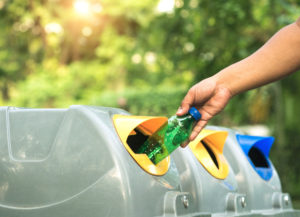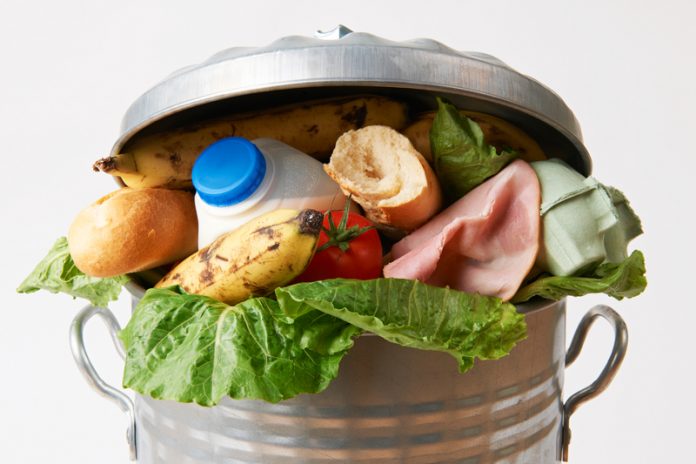

Effective methods of waste management in the hotel industry and why it’s important
Erich Lawson

Major elements of hotel waste
1. single-use plastic waste in hotels.
Single-use plastic waste in hotels is an environmental issue that needs to be addressed. Hotel guests generate tons of single-use plastic waste daily from disposable water bottles, toiletry containers, snack wrappers, and more. Even though the majority of this waste can be recycled or composted, it often ends up in landfills or the ocean due to improper disposal practices. Hotels must proactively address their single-use plastic waste situation to reduce their environmental impact.
There are several steps that hotels can take to manage their single-use plastic waste. They should start by implementing policies that discourage guests from using disposable items, such as banning complimentary bottled water and offering reusable amenities instead of disposables in bathrooms. Hotels also need to ensure they have adequate recycling collection bins throughout the property, so guests know where to deposit their recyclable items.
2. Hotel food waste
Many hotels have their own restaurants, whether for room service, bar food, or silver service. As with any restaurant, this can result in massive amounts of food waste, which, if not appropriately managed, can have a significant environmental impact.

With about 80 billion pounds thrown away in America each year, food is the single greatest component of US landfills. According to some estimates in tourism and hospitality, food accounts for over half of the total waste created by enterprises. This is especially common at hotels that serve buffets, where plate waste (food left on guests’ plates) is a major issue.
3. Guest waste at hotels
Organic guest waste includes food scraps, food containers, napkins, tea bags, coffee grounds, fruits, and vegetables. Non-organic guest waste includes plastic bottles and containers, paper towels, tissues, and other paper products, as well as shampoo bottles and other personal hygiene items. The best way for hotels to manage these different types of guest waste is by implementing proper recycling systems that are easily accessible to guests in all areas of the hotel.
Importance of waste management in hotels
When managing a hotel, it is important to understand the importance of waste management. Waste management involves properly disposing of and recycling materials in order to reduce the environmental impact of hotel operations. Proper waste management can also lead to financial savings for hotels by reducing costs associated with disposal, as well as improved customer satisfaction.
Good waste management practices begin with identifying what kind of materials need to be recycled or disposed of safely. This includes paper, glass, plastic, metal, and food items that would otherwise take up space in landfills or create pollution if not managed correctly.
Hotels should provide designated bins for guests and staff to use when disposing of their trash to separate recyclable materials from non-recyclable materials. By carefully sorting recyclable items such as cardboard and paper products, hotels can significantly reduce their impact on the environment while saving costs at the same time.
Methods that can help to reduce food waste in restaurants
1. conducting waste audits.
Waste audits are an essential part of reducing food waste in restaurants.
A food waste audit involves systematically tracking how much edible food is thrown away over a period of time and then assessing what caused the unnecessary losses so that adjustments can be made to prevent further wastage. With this information, restaurant owners can make changes to reduce their food waste and save money.
Waste auditing is the initial stage in managing waste data analysis. Garbage auditing is the process of figuring out how effectively hotels manage their waste. Waste can be greatly reduced in volume with the aid of industrial balers or trash compactors , making it easier to manage and lowering the cost of waste disposal.
This process can be done manually or with specialized software systems, which make it easier to track, analyze and report on data. Additionally, having feedback meetings with staff members where they discuss what could be done differently will help uncover creative solutions for avoiding excess food waste in the future.
2. Creating a plan for leftovers
By partnering with food banks, restaurants can create an effective plan for leftovers and ensure they are donated to people in need instead of going to waste. Restaurants should also work on proper portion control when preparing meals; this will help avoid excess amounts of new ingredients and save money at the same time. Utilizing take-out containers for unfinished meals and offering discounts on dishes made from leftover items will help encourage customers to reduce their food waste and benefit from lower prices simultaneously.
3. Composting food waste
Composting can be an effective method for reducing the amount of food waste produced by restaurants. Composting reduces the number of edible leftovers sent to landfills by converting these into nutrient-rich soil for use as fertilizer or soil amendment. It also significantly cuts back on methane gas emissions from landfills since compostable materials are broken down aerobically through natural decomposition processes instead of anaerobically when deposited in landfills.
Effective waste disposal methods in hotels can be sampled as follows:
1. restaurant food waste recycling.
You must create a strategy to ensure that all recyclable food waste is always recycled. Organic food waste can be composted to produce nutrient-dense manure for crops and to act as a soil conditioner. Plastic and glass are examples of inorganic waste that can be reused or recycled.
2. Incineration
The food waste is burned in this process. This procedure is most commonly used to dispose of hazardous and poisonous food wastes. As a by-product, ash can provide essential nutrients to crops.
3. Composting
Microbes decompose organic food waste in this process. It can be accomplished by storing food waste in a pit for an extended length of time or by utilizing a composting machine. The compost that is created can be used as plant manure.
4. Sanitary landfill
This requires disposing of food waste in a landfill with a protective lining at the bottom. The lining keeps dangerous chemicals out of the subsurface water zone. This approach is the least desirable since it produces damaging greenhouse gases like methane.
Final thoughts
One of the primary concerns in hotels is waste management, which often goes untreated. Hotel companies need to have a comprehensive framework that helps optimise each waste material in the sector while also reducing environmental impact.

Online Marketing Manager,
Related Articles

Waste management in the South African hospitality sector

Hotel scores back of house savings with solar powered trash compactor
Related courses.
You might also like:

Imagine a day in the life of a Revenue Manager….without using acronyms

Booking insights reveal the top 10 places most likely to have already booked their 2025 holiday

Forbes Travel Guide ratings opinion on the new relevance of luxury

Beyond accommodation: six exciting traveler preferences every hotel should anticipate

Innovative promotion ideas for 2024

Join over 60,000 industry leaders.
Receive daily leadership insights and stay ahead of the competition.
Leading solution providers:

Cogwheel Marketing & Analytics

Eigen Payments

RoomRaccoon

Lighthouse (formerly OTA Insight)

How to manage and minimize food waste in the hotel industry: an exploratory research
International Journal of Culture, Tourism and Hospitality Research
ISSN : 1750-6182
Article publication date: 20 August 2021
Issue publication date: 1 July 2022
The hospitality industry is responsible for significant amounts of waste, more than one-third of which is food waste. Through the comparison between an Italian and a Romanian hotel, this paper aims to provide a better understanding of food waste management trends in the hotel industry as well as to highlight hotel kitchens and hotel food services weaknesses and opportunities to minimize food waste.
Design/methodology/approach
In-depth interviews, personal communication and observations were conducted to investigate food service planning, food procurement and food waste management, as well as to better comprehend current individuals’ understanding and attitudes, infrastructures, legislative culture and opportunities either from the managerial and the employees’ perspective. Data were analyzed according to a content analysis approach.
Three critical hot spots emerged from the analysis: prediction and check of guests’ attendance, communication and transparency with local suppliers and among departments within the unit and purchasing frequency and perishable food provisioning. The accurate forecasting of the number of guests and their nationality is fundamental in avoiding food waste at food service, as well as implementing transparency and communication with local suppliers.
Originality/value
Although academia and authorities have recognized the crucial importance of food waste management, food waste research in the hotel industry remains under-researched. The present exploratory research contributes to the scarce empirical studies about hotels’ food waste, giving theoretical and managerial recommendations for supporting further studies, highlighting the need for formal deals between hotels and local suppliers (food procurement), as well as the importance of food-networks that holds together companies, retailers and charities (food donation).
- Hospitality industry
- Sustainability
- Food procurement
Amicarelli, V. , Aluculesei, A.-C. , Lagioia, G. , Pamfilie, R. and Bux, C. (2022), "How to manage and minimize food waste in the hotel industry: an exploratory research", International Journal of Culture, Tourism and Hospitality Research , Vol. 16 No. 1, pp. 152-167. https://doi.org/10.1108/IJCTHR-01-2021-0019
Emerald Publishing Limited
Copyright © 2021, Vera Amicarelli, Alina-Cerasela Aluculesei, Giovanni Lagioia, Rodica Pamfilie and Christian Bux.
Published by Emerald Publishing Limited. This article is published under the Creative Commons Attribution (CC BY 4.0) licence. Anyone may reproduce, distribute, translate and create derivative works of this article (for both commercial and non-commercial purposes), subject to full attribution to the original publication and authors. The full terms of this licence may be seen at http://creativecommons.org/licences/by/4.0/legalcode
1. Introduction
In the European Union (EU), more than 88 million tons (Mt) of food waste is generated each year, representing approximately 20% of the food produced in the member states and accounting for over €143bn in terms of associated financial costs ( European Commission, 2019 ). To mitigate this phenomenon with highly social, economic and environmental impacts, the EU strengthened the role of sustainable consumption and production patterns in the food and beverage industry, focusing on the role of food waste and on food services ( Beretta and Hellweg, 2019 ; Filimonau et al. , 2019 ). Indeed, EU declared food waste as one of ten major indicators of the Circular Economy Monitoring Framework and targeted the decrease food losses as one of the Sustainable Development Goal’s priorities, adopted in Agenda 2030, in terms of sustainable production and consumption. Habits or emotions still represents one of the major obstacles toward food waste minimization, highlighting the urgent need to involve consumers, governments and public authorities toward a more effective management of foodstuffs and waste deriving from production and domestic activities ( van Geffen et al. , 2019 ; Amicarelli et al. , 2021 ). Further, the European Commission also initiated the EU Platform on Food Losses and Food Waste, accounting food loss and waste within the European Green Deal (Farm to Fork Strategy).
To this extend the hospitality industry, which represents a growing sector worldwide with a market value of over US$600bn in 2018 (+28% on 2014 market data) ( Statista, 2020a ), requires specific attention. With regards to the hotel industry, in terms of environmental impact, the International Hotel Environmental Iniviative (2002) estimated, on average, a daily amount of 0.8–1.2 kg of waste per guest, doubled on checkout days ( Pirani and Arafat, 2014 ; Abdulredha et al. , 2018 ). Although such quantity is mainly composed of solid waste (e.g. packaging), a considerable percentage (more than one-third) is represented by food waste, roughly 75% of which is still edible ( Williams et al. , 2011 ). In this context, an exploratory study has been conducted to gain a better understanding on food waste management trends in the hotel industry as well as to highlight hotel kitchens and hotel food services weaknesses and opportunities to minimize food waste, proposing a comparison between Italian and Romanian experiences. Contributing to the scarce empirical studies about hotels’ food waste, the present research aims at giving theoretical and managerial recommendations either for supporting further studies, identifying preliminary implication or suggesting policy measures in the field of food waste management.
2. Literature review and research background
2.1 empirical and theoretical approaches on hotels’ food waste management.
The hospitality industry, encompassing establishments such as canteens, elderly care hospitals, hotels, schools, restaurants and universities ( Malefors et al. , 2019 ), represents one of the major incomes and labor sources in EU, and predictions on its sharp increase in future years impose several challenges to the economy, environment and society ( Styles et al. , 2019 ). Indeed, considering its practical importance, the topic raised the interest of scholars and academics in the field of food waste causes, disposal opportunities and techniques of valorization along the upstream stages of the food supply chain ( Schanes et al. , 2018 ; van Geffen et al. , 2019 ). However, a limited number of studies have been conducted within hotel kitchens and hotel food services.
In terms of food waste quantification, Gretzel et al. (2019) recorded examples of reductions in pre- and post-consumption food waste, respectively kitchen and plate waste, mostly due to its impact on profitability and high costs of disposal. Then, considering a research conducted in a five-star hotel in Malta, Camilleri-Fenech et al. (2020) revealed that plate waste was on average of 0.21 kg/person at lunch and 0.16 kg/person at dinner, increasing to 0.48 kg/person during a buffet dinner. Nevertheless, the authors investigating the significant role of food planning practices in hotel kitchens ( Leverenz et al. , 2021 ), as well as food waste management alternatives in hotel food services ( Gandhi et al. , 2019 ), suggesting theoretical, managerial and political recommendations, are very few in number. Further, most of the studies were conducted in hotels located in Asia ( Kasavan et al. , 2019 ) or America ( Okumus, 2019 ), while few researches concerned European realities. According to Okumus et al. (2020) , the main hot spots for food waste are related to guest behaviors, preferences and attitudes and its limitation is complex due to the hospitality business’s intrinsic unpredictability. As Tomaszewska et al. (2021) stated, the intervention on hotel staff’s and guests’ behaviors should be done through education. On the one hand, employees should be trained in the proper handling of food, while consumers should be informed on food waste consequences in terms of social, environmental and financial issues. Further, it seems crucial to investigate familiarity, knowledge and culinary traditions related to guests’ nationality ( Dolnicar and Juvan, 2019 ). Indeed, food waste at the hospitality level significantly depends on patrons’ lack of knowledge on how to eat certain food items and lack of familiarity with certain types of food preparation.
In addition, literature has distinguished between managerial and consumers-side variables. At managerial level, the most investigated items regarded “inventory management and checks,” “supplier agreement and relationship,” “business models and concept,” “food provisioning” and “accuracy in the prediction of the number of expected customers” ( Dhir et al. , 2020 ), while consumer-level ones focused on “perception,” “attitudes and behavior” and “eating habits” ( Papargyropoulou et al. , 2016 ). As Tatàno et al. (2017) stated, food waste can be limited by promoting and using local, fresh and quality food, standardizing daily menus and improving cooking knowledge and experience, as well as limiting plate sizes. However, although such studies seem to address general paths and rooms for research, none of them explores food procurement, preparation and disposal in Italian or Romanian hotels.
2.2 Italian and Romanian legislative background
The hotels global occupancy rate, which is “the share of total rooms available which are occupied or rented at a given time,” reaches its highest value in EU (72.4%), where more than 6.3 million bedrooms are located. Among the EU-27 countries, Italy represents the highest quota, accounting for over 1 million bedrooms and similar accommodations (17%) in 2018 ( Istat, 2020 ; Statista, 2020a ). In Romania, the total number of hotels was 1,600, with an accommodation capacity of 198,000 places and around 195,000 rooms ( National Institute for Statistics – Romania, 2020 ). Table 1 illustrates Italian and Romanian hotels-related characteristics.
At country level, it is estimated that Italian avoided, reused, recycled or donated food amounts to over 90,000 t ( Banco Alimentare, 2019 ). Historically, the Italian experience started with Banco Alimentare in 1989, subsequently implemented by Law 460/1997 and Law 133/1999, and the first project was conducted in Northern Italy solely in 2003. Nevertheless, one of the first research conducted in the field of food donations, food safety and food security, was carried out in 2012 in Milan ( Garrone et al. , 2012 ). Although authorities suggested actions toward sustainable food consumption, Legge Gadda ( GURI, 2016 ) has been implemented only in 2016, stating that hotels’ stakeholders could donate unconsumed food to needy people and/or to feed animals or use for auto-composting. In Romania, food waste legislation resumes with Law 217/2016 that was completed on January 30, 2019 with the implementation rules. The law’s main objective is to mitigate food waste in Romania and encourage food donation. Moreover, the companies that agree to donate food surpluses will benefit from tax incentives. Food donation is the subject of several rules, such as the durability of food products or the type of food ( Ministry of Agriculture and Rural Development, 2019 ). However, a specific law to apply in the hotel and restaurant sector has not been developed yet in Romania, remaining food waste at the discretion of each individual. At national level, the NGO sector created initiatives to mitigate food waste, such as Food Waste Romania Platform, the social shop Samaro ( foodwaste.ro, 2020 ), Food Bank Bucharest and other similar projects international supermarket chains initiated (e.g. Lidl, Metro, Carrefour). However, the majority of initiatives are still concentrated in big cities like Bucharest, Cluj Napoca or Constanta, while less developed areas in Romania are insufficiently approached ( Cantaragiu and Hadad, 2019 ).
3. Research methodology
In line with the European Commission (OJEU, 2019) which includes, among others, interviews as one of the five methodologies to investigate food waste along the entire food supply chain, the present exploratory research was based on in-depth interviews among managers, chefs and food service staff, joined to personal communications and observations inside the hotels. Then, considering the exploratory nature of the research, data have been analyzed according to a content analysis, being therefore possible to gain familiarity with the phenomenon in a flexible, inexpensive and unstructured way (Walsh, 2003; Erlingsson and Brysiewicz, 2017 ).
3.1 Brief hotel description
The Italian hotel (IT) is located in Marina of Palese, a coastal town in North of Bari in Apulia region. Its strategic position, 100 meters from the beach (Marina of Palese), 10 km far from Bari city center, 2 km from the airport (Karol Wojtyla international Airport) and its well connected with the central railway station and seaport make it perfect for business, cultural events and leisure stays. H1 is a four-star hotel, with 101 rooms, a restaurant, a cocktail bar, four conference halls and an outdoor pool, and it is not part of an international chain. The hotel staff is composed of two managers, 12 chefs and members of the kitchen staff and 15 members of the service staff.
The Romanian hotel (RO) is a four-star accommodation unit located in the city center of Buzau, in the Southeast Region. The unit is located about 20 km away from the spa resort, Sarata Monteoru, and 110 km away from Bucharest, Romania's capital. The hotel has 120 rooms: 90 double rooms and 30 apartments, a spa center, four restaurants for large and small events and two conference halls, making it suitable for business and events. Further, it is not part of an international chain. In terms of human resources, the unit counts workers distinguished as follows: 3 managers, 15 among chefs and members of the kitchen staff, 20 members of the service staff. Being a national brand with its own internal rules, and being located in a city instead of in a resort, makes the results more accurate and helps researchers to better understand the food waste process.
3.2 Data collection through in-depth interviews
inventory management and checks;
supplier agreement and relationships;
business models and concepts;
food provisioning; and
expected costumers’ prediction.
food service planning (e.g. organization of the buffet or the à-la-carte menu);
food procurement (e.g. food purchase frequency, procurement markets, products selection based on price or quality, selection of the quantity to buy); and
food waste disposal, in terms of drivers, disposal routes and possible solution/alternatives to disposal.
purchase of raw materials and ingredients;
food preparation;
food service à la carte and/or buffet;
food disposal of inedible food; and
food disposal and/or recovery of unconsumed and still edible food donation ( Figure 1 ).
3.3 Data analysis
summary, reducing material into meaning units and preserving the essential content (e.g., paraphrased, generalized or reduced interviews);
explication (or categorization), clarifying and annotating the keywords; and
interpretation, in a process which starts from initial theory and arrives to interpretation.
Data have been elaborated using Microsoft Excel spreadsheets. Figure 2 illustrates the research process from data collection to interpretation.
In-depth interviews, according to the content analysis, have been systematically investigated in a transparent and rigorous way, as shown in the example provided in Table 2 .
chefs (kitchen staff); and
waiters (service staff), highlighting differences and similarities among the units.
Indeed, it results that keywords such as “self-production” and “local” have been mainly used by IT managers, while “cash-and-carries” and “software” by RO ones. The same applies to IT chefs, which have mainly adopted keywords like “dealers” and “agreements” rather than “supermarkets” and “composting”, as RO chefs did. In terms of waiters/service staff, IT and RO employees have shown a certain similarity resulting in keywords like “fruits”, “vegetables” and “pastries”, as well as “nationality” and “age”.
4.1 Results on the side of food service planning
control of guests’ attendance;
efficient communication between departments; and
perishable goods storage and management.
According to food service planning, breakfast and dinner are served as a buffet, while lunch is à-la-carte. In the buffet organization, the main steps regard (manually) quantifying guests and analyzing their nationality, since the quality/quantity of needed food mostly depends on it. Moreover, in terms of food supply, IT managers tent to maximize self-production of food (e.g. croissants, cakes, jam or bread are homemade), implementing the “farm-to-fork” approaches to reduce food waste amounts and associated environmental impacts and financial costs. RO experience follows similar trends. Indeed, both managers and chefs consider food waste policy, focusing their strategy on waste collection according to the national rules, highlighting the staff’s role in adopting sustainable behaviors. Indeed, the main obstacles in decreasing food waste are the lack of reservation forecast – which requires introducing a particular software and hiring skilled employees – and the lack of logistic service to support food waste. Furthermore, serving breakfast as a buffet, and being aware that such service is more food waste generating, the unit makes substantial efforts by analyzing the number of guests and their nationality, the season and their (eventual) special requests. Moreover, management is also concerned about the behavior changes in terms of food consumption (e.g. food trends) and food availability in local markets, trying to adjust provisioning quantities as soon as possible.
4.2 Results on the side of food purchase
According to food purchase, Italians are more likely to buy food at cash and carries and fresh local markets on a daily basis, strengthening informal agreements with dealers that have huge quantities of fresh fruit and vegetables and offer them particular discounts to avoid useless waste. Therefore, IT has created a well-articulated network with local fruit and vegetable retailers, implementing a so-called industrial symbiosis. Managers and dealers work together to prevent unsold but still edible product from becoming waste, transforming fresh fruit into jam and increasing (if possible) the offer of fruits and vegetables in the menu. In this way, food waste is avoided at marketplaces with related monetary benefits for both actors: sellers, who are not forced to throw away food, losing their revenue, and hotel managers, who buy food with an economic advantage. On the other side, Romanians purchase raw ingredients and food primarily from cash and carries units, supermarkets, online and collaborates with HoReCa (Hotels, Restaurants and Catering) suppliers daily. They self-prepare food inside the unit, both from raw ingredients and edible unconsumed food, but have declared no particular interaction with local markets or specific dealers.
4.3 Results on the side of food waste management
At the moment of disposal, IT managers pay attention to the difference between edible (for human donation) and inedible food (mainly for animal feed). The south of Italy’s historical background justifies this knowledge: Until the 1970s, IT was located in a peripheral area of the municipality of Bari, surrounded by areas intended for agriculture and animal breeding. Nowadays, after a sharp urbanization process, urban areas have spread, replacing lands and pastures all around the hotel. In the case of food waste at preparation, managers give priority to animal feed (personal knowledge of local breeders) and later to separate waste. If food waste is generated at consumption, leftovers from buffets are mainly donated to the staff and/or used for other meals’ preparation. Indeed, food waste from guests’ plates is mandatorily destined to a separate collection, even if hoteliers are still skeptical toward it – they do not strongly believe in the efficiency of collection services and often, due to such skepticism, are not particularly focused on wasting differentiation. On the other side, RO managers and kitchen staff understand the difference between edible and inedible food and take actions following the national legislation. At the moment of disposal, they give priority to separate collection, then they provide the edible food to the staff and, if possible, use edible food to prepare other dishes. Regarding the inedible fractions, they are mainly used for compost.
4.4 Results on the side of the kitchen and service staff
According to waiters and food service staff, buffet service appears more responsible for food waste than à-la-carte one, as guests’ behavior is generally unsustainable/unaware toward the issue. The principal typologies of food waste detected are fruits, vegetables and pastries. In addition, Italian families with children seems to be the less virtuous toward the issue, while old-aged people, foreign guests and business travelers are the most virtuous ones. In terms of opportunities, staff considers an awareness campaign as a good solution to mitigate food waste. In this way, the hotel would inform guests about the consequences of food waste, stressing the necessity of pursuing sustainable behavior ( Kallbekken and Sælen, 2013 ; Chen and Jai, 2018 ). Moreover, kitchen and food service staff propose several actions to mitigate food waste that employees can adopt. Some examples include disposing raw ingredients according to the specifications on the label. Also, the ingredients should be stored depending on the level of freshness: Food bought more recently should be placed toward the back of the fridge. Another idea is to freeze food every time it is suitable.
implementing an awareness plan within and outside the units; and
introducing policies that regulate the withdrawal of unconsumed food for human consumption and animal feed.
5. Discussion
5.1 driving forces and obstacles.
From the moment food enters the consumption stage (as raw ingredients) until the moment it exits (as leftovers and/or waste), little is known about what happens. Generally, food preparation, food service and unconsumed food management are intended as a single process, but this is not true: It is important to understand where food is bought, the purchasing frequency, the way food is prepared and consumed and the techniques adopted to dispose and/or reuse what has become waste. This means that the single process, the so-called “final consumption,” must be disaggregated among single activities ( Marthinsen et al. , 2012 ). As previously discussed by academics ( Silvennoinen et al. , 2015 ), these activities vary from one unit to another and depend on proper internal organization and management, nationality, social and cultural heritage and other subjective and objective variables (i.e. level of integration, communication and transparency within the different unit departments, innovation and technologies adopted, knowledge of legislative framework).
predicting and checking guests’ attendance;
communication and transparency with local suppliers and among departments within the unit; and
purchasing frequency and perishable food provisioning.
In line with literature ( Tatàno et al. , 2017 ; Principato et al. , 2018 ), accurately forecasting of the number of guests and their nationality seems to be fundamental in avoiding food waste at food service as well as implementing transparency and communication outside the unit through efficient communication between local fresh market suppliers and hotels (or restaurants) ( Kilibarda et al. , 2019 ). Indeed, informal deals between hotels and local suppliers should be substituted by formal agreements, as the creation of preferential distribution channels could avoid food waste at distribution stage through selling perishable products at a lower price. Further, the paradigm of transparent and clear communication must also be implemented between chefs, waiters and managers, considering that managers, who personally take care of the kitchen and are aware of food waste issue, who coordinate more than one department and know exactly how to prepare and to dispose food, are more likely to control and correct food waste attitudes, converging toward more sustainable procedures in a shorter time. Though, several obstacles should be removed, such as the lack of a specific software to calculate the “number of guests–food required” ratio, the lack in separate collection infrastructures – of which some managers are skeptical – and the lack of an awareness campaign addressed to guests, as suggested by Chinese managers ( Filimonau et al. , 2020 ).
In terms of future perspectives on food waste management, results from the analysis are quite similar to those already presented by previous authors. Good practical examples refer to the introduction of tasting plates, which allows guests – especially children – to taste small portions of food. Indeed, as stated by Juvan et al. (2018) , massive portions containing local food (usually not familiar to tourists) cause much waste. Other possible measures could regard the reduction of the buffet rooms, considering that smaller areas are more likely to be controlled, or the implementation of specialized software to better estimate the quantities needed (currently carried out with rudimentary management systems). Further, in terms of food leftovers management, both managers from Italy and Romania have proposed introducing an online platform for donating food both for human consumption or for animals and suggested promoting awareness campaigns within and outside each unit (at the local, regional and national levels). One possible option, as suggested by Linh (2018) , could be the introduction of web-based and mobile platforms intended to recover food excess and prevent them from being thrown away. In addition, local authorities should stress the need for formal agreements among hotels and charities, considering that most of the solutions to reduce food waste in the hospitality industry pass through the private sector (e.g. online platforms such as TooGoodToGo) ( Alaimo et al. , 2021 ).
5.2 Theoretical prospects, limitations and future research
Under a theoretical perspective, the exploratory research contributes to the scarce empirical studies about hotels’ food waste, giving theoretical and managerial recommendations either for supporting further studies, identifying preliminary implication or suggesting policy measures. Indeed, it confirms past trends and adds new insights, stressing the urgence for support in the creation of formal agreements either between hotels, local suppliers (in terms of food procurement) and charities (in terms of food donation). However, one of the main limits of the present research is represented by the numbers of units investigated, which do not guarantee generalizations at sector level but still provides essential highlights for public authorities, academics and private stakeholders. To this extent, further research is intended to investigate guests’ perspective, highlighting the role of consumers’ awareness, attitudes and behavior toward food waste minimization in the hotel industry. In addition, future studies will include a larger number of hotels with different characteristics and located in other parts regions of Italy and Romania.
6. Conclusions
In conclusion, the hotel sector has significant opportunities to reduce the amount of food waste it produces, but several efforts are required both by single units and public authorities. Indeed, the present research shows that either Italian and Romanian managers, chefs and service staff are aware of food waste issues under financial, social and environmental perspective, and are continuously looking for solutions, but face every day several obstacles toward its minimization. According to those opportunities outside-the-unit, it seems essential to enhance formal deals between hotels and local suppliers, trying to create preferential distribution channels which could generate advantages from the side of food service and from that of food distribution. Further, formal agreements should be underwritten between hotels and foodbanks, with the aim of generating a food-network that holds together companies, retailers and charities. In terms of solutions inside-the-unit, several efforts are needed to improve processes at administrative, kitchen and service level. Indeed, considering the importance of involving technology in the hotel sector, units should have more support from national authorities both in terms of funding and consultancy. It is essential the introduction of dedicated software that can predict the quantities of required raw ingredients on the basis of the number of guests and their nationality. Limiting the quantities of unconsumed food needs more than traditional analyses, and digitalization in this regard can represent an actual solution.
Main processes investigated
Research process from data collection to interpretation
Keywords share among IT – RO managers, chefs and service staff
Italian and Romanian hospitality numbers in 2018
(Personal elaboration by the authors)
Abdulredha , M. , Al Khaddar , R. , Jordan , D. , Kot , P. , Abdulridha , A. and Hashim , K. ( 2018 ), “ Estimating solid waste generation by hospitality industry during major festivals: a quantification model based on multiple regression ”, Waste Management , Vol. 77 , pp. 388 - 400 .
Alaimo , L.S. , Fiore , M. and Galati , A. ( 2021 ), “ Measuring consumers’ level of satisfaction for online food shopping during COVID-19 in Italy using POSETs ”, Socio-Economic Planning Sciences , p. 101064 .
Amicarelli , V. , Tricase , C. , Spada , A. and Bux , C. ( 2021 ), “ Households’ food waste behavior at local scale: a cluster analysis after the COVID‐19 lockdown ”, Sustainability , Vol. 13 No. 6 , pp. 3283 .
Andreu , L. , Bigne , E. , Amaro , S. and Palomo , J. ( 2020 ), “ Airbnb research: an analysis in tourism and hospitality journals ”, International Journal of Culture, Tourism and Hospitality Research , Vol. 14 No. 1 , pp. 2 - 20 .
Babbie , E. ( 2020 ), The Practice of Social Research , 15th ed. , Cengage Learning , Boston .
Banco Alimentare ( 2019 ), “ Risultati ”, available at: www.bancoalimentare.it/it ( accessed 19 December 2020 ).
Bengtsson , M. ( 2016 ), “ How to plan and perform a qualitative study using content analysis ”, NursingPlus Open , Vol. 2 , pp. 8 - 14 .
Beretta , C. and Hellweg , S. ( 2019 ), “ Potential environmental benefits from food waste prevention in the food service sector ”, Resources, Conservation and Recycling , Vol. 147 , pp. 169 - 178 .
Boo , S. and Busser , J.A. ( 2018 ), “ Meeting planners' online reviews of destination hotels: a twofold content analysis approach ”, Tourism Management , Vol. 66 , pp. 287 - 301 .
Brancato , G. , Macchia , S. , Murgia , M. , Signore , M. , Simeoni , G. , Blanke , K. , Korner , T. , Nummergut , A. , Lima , P. , Paulino , R. and Hoffmeyer-Zlotnik , J.H.P. ( 2006 ), Handbook of Recommended Practices for Questionnaire Development and Testing in the European Statistical System , Istat , Rome .
Bryman , A. ( 1992 ), “ Quantitative and qualitative research: further reflections on their integration ”, in Brannen , J. (Ed.), Mixing Methods: qualitative and Quantitative Research , Avebury , Brookfield , pp. 57 - 78 .
Camilleri-Fenech , M. , Oliver , J. , Farreny , R. and Gabarrell , X. ( 2020 ), “ A snapshot of solid waste generation in the hospitality industry ”, Sustainable Production and Consumption , Vol. 21 , pp. 104 - 119 .
Camprubì , R. and Coromina , R. ( 2016 ), “ Content analysis in tourism research ”, Tourism Management Perspectives , Vol. 18 , pp. 134 - 140 .
Cantaragiu , R. and Hadad , S. ( 2019 ), “ Food waste and rural tourism – a Romanian perspective ”, Ovidius University Annals, Economic Sciences Series , Vol. 19 No. 1 , pp. 152 - 160 .
Charlebois , S. , Creedy , A. and von Massow , M. ( 2015 ), “ Back of house” – focused study on food waste in fine dining: the case of delish restaurants ”, International Journal of Culture, Tourism and Hospitality Research , Vol. 9 No. 3 , pp. 278 - 291 .
Chen , H.S. and Jai , T.C. ( 2018 ), “ Waste less, enjoy more: forming a messaging campaign and reducing food waste in restaurants ”, Journal of Quality Assurance in Hospitality & Tourism , Vol. 19 No. 4 , pp. 495 - 520 .
Denzin , N.K. and Lincoln , Y.S. ( 2005 ), “ Introduction: the discipline and practice of qualitative research ”, in Denzin , N.K. and Lincoln , Y.S. (Eds), The Sage Handbook of Qualitative Research , Sage Publications , pp. 1 - 32 .
Dhir , A. , Talwar , S. , Kaur , P. and Malibari , A. ( 2020 ), “ Food waste in hospitality and food services: a systematic literature review and framework development approach ”, Journal of Cleaner Production , Vol. 270 , p. 122861 .
Dolnicar , S. and Juvan , E. ( 2019 ), “ Drivers of plate waste: a mini theory of action based on staff observations (research note) ”, Annals of Tourism Research , Vol. 78 , p. 102731 .
Erlingsson , C. and Brysiewicz , P. ( 2017 ), “ A hands-on guide to doing content analysis ”, African Journal of Emergency Medicine , Vol. 7 No. 3 , pp. 93 - 99 .
European Commission ( 2019 ), “ Q&A. Frequently asked questions: reducing food waste in the EU ”, available at: https://ec.europa.eu/commission/presscorner/detail/en/QANDA_19_6706 ( accessed 20 December 2020 ).
Filimonau , V. , Krivcova , M. and Pettit , F. ( 2019 ), “ An exploratory study of managerial approaches to food waste mitigation in coffee shops ”, International Journal of Hospitality Management , Vol. 76 , pp. 48 - 57 .
Filimonau , V. , Zhang , H. and Wang , L.E. ( 2020 ), “ Food waste management in shanghai full-service restaurants: a senior managers’ perspective ”, Journal of Cleaner Production , Vol. 258 , pp. 120975 .
foodwaste.ro ( 2020 ), “ About the platform ”, available at: http://foodwaste.ro/platforma/ ( accessed 19 December 2020 ).
Gandhi , P. , Kumar , S. , Paritosh , K. , Pareek , N. and Vivekanand , V. ( 2019 ), “ Hotel generated food waste and its biogas potential: a case study of Jaipur city, India ”, Waste and Biomass Valorization , Vol. 10 No. 6 , pp. 1459 - 1468 .
Garrone , P. Melacini , M. Perego , A. and Pollo , M. ( 2012 ), “ Food waste reduction: empirical findings from the Italian food supply chain ”, available at: https://ssrn.com/abstract=2109587 ( accessed 21 April 2021 ).
Gretzel , U. , Murphy , J. , Pesonen , J. and Blanton , C. ( 2019 ), “ Food waste in tourist households: a perspective article ”, Tourism Review , Vol. 75 No. 1 , pp. 235 - 238 .
GURI (Gazzetta Ufficiale Repubblica Italiana) ( 2016 ), LEGGE 19 Agosto 2016, n. 166, Disposizioni Concernenti la Donazione e la Distribuzione di Prodotti Alimentari e Farmaceutici a Fini di Solidarietà Sociale e per la Limitazione Degli Sprechi, Serie Generale n. 202 del 30‐08‐2016 .
International Hotel Environmental Iniviative ( 2002 ), “ Hotels case: Community action and responsibility for the environment ”, IHEI, London, England .
Istat ( 2020 ), “ Esercizi ricettivi: capacità degli esercizi ricettivi per movimento dei clienti negli esercizi ricettivi per tipo di esercizio – mensili – com ”, available at: http://dati.istat.it/Index.aspx?QueryId=7053 ( accessed 19 December 2020 ).
Juvan , E. , Grün , B. and Dolnicar , S. ( 2018 ), “ Biting off more than they can chew: food waste at hotel breakfast buffets ”, Journal of Travel Research , Vol. 57 No. 2 , pp. 232 - 242 .
Kallbekken , S. and Sælen , H. ( 2013 ), “ Nudging’ hotel guests to reduce food waste as a win–win environmental measure ”, Economics Letters , Vol. 119 No. 3 , pp. 325 - 327 .
Kasavan , S. , Mohamed , S.F. and Halim , S.A. ( 2019 ), “ Drivers of food waste generation: case study of island-based hotels in Langkawi, Malaysia ”, Waste Management , Vol. 91 , pp. 72 - 79 .
Kilibarda , N. , Djokovic , F. and Suzic , R. ( 2019 ), “ Food waste management – reducing and managing food waste in hospitality ”, Meat Technology , Vol. 60 No. 2 , pp. 134 - 142 .
Leray , L. , Sahakian , M. and Erkman , S. ( 2016 ), “ Understanding household food metabolism: relating micro-level material flow analysis to consumption pratices ”, Journal of Cleaner Production , Vol. 125 , pp. 44 - 55 .
Leverenz , D. , Hafner , G. , Moussawel , S. , Kranert , M. , Goossens , Y. and Schmidt , T. ( 2021 ), “ Reducing food waste in hotel kitchens based on self-reported data ”, Industrial Marketing Management , Vol. 93 , pp. 617 - 627 .
Linh , N.K. ( 2018 ), Food Waste Management in the Hospitality Industry Case Study: Clarion Hotel Helsinki. Haaga-Helia , University of Applied Sciences , Helsinki, Finland .
Malefors , C. , Callewaert , P. , Hansson , P.A. , Hartikainen , H. , Pietiläinen , O. , Strid , I. , Strotmann , C. and Eriksson , M. ( 2019 ), “ Towards a baseline for Food-Waste quantification in the hospitality Sector-Quantities and data processing criteria ”, Sustainability , Vol. 11 No. 13 , p. 3541 .
Marthinsen , J. , Sundt , P. , Kaysen , O. and Kirkevaag , K. ( 2012 ), “ Prevention of food waste in reastaurants, hotels, canteens and catering ”, Nordic Council of Ministers , Copenaghen , Denmark .
Mayring , P. ( 2000 ), “ Qualitative content analysis ”, Forum: Qualitative Social Research , Vol. 1 No. 2 , pp. 1 - 20 .
Ministry of Agriculture and Rural Development ( 2019 ), “ Reglementări privind risipa alimentară ”, available at: www.madr.ro/comunicare/4948-reglementari-privind-risipa-alimentara.html ( accessed 19 December 2020 ).
National Institute for Statistics – Romania ( 2020 ), “ Tourism series ”, available at: http://statistici.insse.ro:8077/tempo-online/#/pages/tables/insse-table ( accessed 21 December 2020 ).
OJEU (Official Journal of the European Union ( 2019 ), “ Commission delegated decision (EU) 2019/1597 of 3 may 2019 ”, available at: https://eur-lex.europa.eu/legal-content/EN/TXT/?uri=OJ:L:2019:248:TOC ( accessed 17 December 2020 ).
Okumus , B. ( 2019 ), “ How do hotels manage food waste? Evidence from hotels in Orlando, Florida ”, Journal of Hospitality Marketing & Management , Vol. 29 No. 3 , pp. 291 - 309 .
Okumus , B. , Taheri , B. , Giritlioglu , I. and Gannon , M. ( 2020 ), “ Tackling food waste in all-inclusive resort hotels ”, International Journal of Hospitality Management , Vol. 88 , p. 102543 .
Papargyropoulou , E. , Wright , N. , Lozano , R. , Steinberger , J. , Padfield , R. and Ujang , Z. ( 2016 ), “ Conceptual framework for the study of food waste generation and prevention in the hospitality sector ”, Waste Management , Vol. 49 , pp. 326 - 336 .
Pirani , S.I. and Arafat , H. ( 2014 ), “ Solid waste management in the hospitality industry: a review ”, Journal of Environmental Management , Vol. 146 , pp. 320 - 336 .
Pirani , S.I. and Arafat , H. ( 2016 ), “ Reduction of food waste generation in the hospitality industry ”, Journal of Cleaner Production , Vol. 132 , pp. 129 - 145 .
Principato , L. , Pratesi , C.A. and Secondi , L. ( 2018 ), “ Towards zero waste: an exploratory study on restaurant managers ”, International Journal of Hospitality Management , Vol. 74 , pp. 130 - 137 .
Schanes , K. ,; Dobernig , K. and GöZet , B. ( 2018 ), “ Food waste matters – a systematic review of household food waste practices and their policy implications ”, Journal of Cleaner Production , Vol. 182 , pp. 978 - 991 .
Severt , D. , Aiello , T. , Elswick , S. and Cyr , C. ( 2008 ), “ Hospitality in hospitals? ”, International Journal of Contemporary Hospitality Management , Vol. 20 No. 6 , pp. 664 - 678 .
Silvennoinen , K. , Heikkilä , L. , Katajajuuri , J.M. and Reinikainen , A. ( 2015 ), “ Food waste volume and origin: case studies in the Finnish food service sector ”, Waste Management , Vol. 46 , pp. 140 - 145 .
Statista ( 2020a ), “ Hotels ”, available at: www.statista.com/outlook/267/100/hotels/worldwide ( accessed 16 December 2020) .
Statista ( 2020b ), “ Number of bedrooms in hotels and similar accomodation in Romania from 2007 to 2019 ”, available at: www.statista.com/statistics/613866/number-of-hotel-bedrooms-romania/ ( accessed 16 December 2020 ).
Styles , D. , Schönberger , H. and Galvez Martos , J.L. ( 2019 ), Best Environmental Management Practice in the Tourism Sector , European Commission - Joint Research Centre , Seville .
Tatàno , F. , Caramiello , C. , Paolini , T. and Tripolone , L. ( 2017 ), “ Generation and collection of restaurant waste: characterization and evaluation at a case study in Italy ”, Waste Management , Vol. 61 , pp. 423 - 442 .
Tomaszewska , M. , Bilska , B. , Tul-Krzyszczuk , A. and Kołożyn-Krajewska , D. ( 2021 ), “ Estimation of the scale of food waste in hotel food Services-A case study ”, Sustainability , Vol. 13 No. 1 , p. 421 .
van Geffen , L. , van Herpen , E. and van Trijp , H. ( 2019 ), “ Household food waste – how to avoid it? An integrative review ”, in Närvänen , E. , Mesiranta , N. , Mattila , M. and Heikkinen , A. (Eds), Food Waste Management , Palgrave Macmillan , Cham .
Walsh ( 2003 ), “ Qualitative research: advancing the science and practice of hospitality ”, Cornell Hotel and Restaurant Administration Quarterly , April 2003 , pp. 66 - 74 .
Williams , P. , Leach , B. , Christensen , K. , Armstron , G.D. , Hawkins , R.P. , Lane , A.J.G. and Scholes , P. ( 2011 ), The Composition of Waste Disposed of by the UK Hospitality Industry , Waste and Resources Action Programme , London , Report RES093-001 .
Further reading
International Hotels Environment Initiative ( 2002 ), Hotels Care: Community Action and Responsibility for the Environment , IHEI , London, England .
Kohlbacker , F. ( 2006 ), “ The use of qualitative content analysis in case study research ”, Forum: Qualitative Social Research , Vol. 7 No. 1 , p. 21 .
Acknowledgements
The authors thank Rosa Basile and her team for the support during the research on food waste management within the hotel industry.
Corresponding author
About the authors.
Vera Amicarelli, PhD in Commodity Science, is an Associate Professor at Department of Economics, Management and Business Law DEMDI Commodities Science section at the University of Bari Aldo Moro, Italy. She teaches Industrial Ecology, Quality theory and technique and Resource and waste management. She is the author of more than 75 papers published on scientific journals and academic volumes. Her current research interests are focused on Material Flow Analysis, Environmental Indicators such as Water and Carbon Footprint and Circular Economy. Her main academic activities are related to Erasmus+ exchange program – she is department delegate and coordinator for several agreements with foreign universities – and she is in the working group for DEMDI course of study qualification. Since 2018, she is member of ICESP (Italian Circular Economy Stakeholders Platform) and form 1998 of Italian Commodity Science Academy (AISME).
Vera Amicarelli is based at the Department of Economics, Management and Business Law, University of Bari Aldo Moro, Bari, Italy
Alina-Cerasela Aluculesei, PhD in Business Administration and Tourism, is a Scientific Researcher at the Institute for World Economy from the Romanian Academy. She is the Editor in Chief and Owner of the Junior Scientific Researcher Journal . Her current research interests are focused on wellness and health tourism, Romanian SPAS, food loss and food waste minimization, education on climate change. She is author of more ten papers published on scientific journals and academic volumes.
Alina-Cerasela Aluculesei is based at Institute for World Economy, Romanian Academy, Bucharest, Romania
Giovanni Lagioia, PhD in Commodity Science, is a Full Professor of Commodity Science, Commodity Science of Natural Resources and Environmental Certification Systems at the Department of Economics, Management and Business Law of the University of Bari, Italy and at Catholic University Our Lady of Good Counsel, Faculty of Economics, Tirana, Albania. He is author of more than 150 papers published on the main scientific journals and academic volumes. His principal field of study regards impacts of commodity production and consumption and environmental management systems. Since 2018, he is Director of the Department of Economics, Management and Business Law, University of Bari Aldo Moro, Italy.
Giovanni Lagioia is based at the Department of Economics, Management and Business Law, University of Bari Aldo Moro, Bari, Italy
Rodica Pamfilie, PhD, is a Full Professor of Commodity Science and Management of Innovation and Design at the Bucharest University of Economic Studies, Faculty of Business and Tourism. She is coordination of the educational and scientifical activities in the Faculty of Business and Tourism, Business administration (in Commerce, Tourism and Services, Study of commodities and Quality Management) field. She is coordinator of PhD thesis, of dissertations for master’s programs and for graduation degrees. She is the Vice-president of the International Association of Commodity Science and Quality Management (IGWT).
Rodica Pamfilie is based at the Faculty of Business and Tourism, Bucharest University of Economic Studies, Bucharest, Romania
Christian Bux is a PhD student in Economics and Management at University of Bari Aldo Moro, Department of Economics, Management and Business Law. His main field of interest is the relationship between natural resources, commodity production/consumption and environmental management systems. His doctoral research project regards food loss and waste management, circular economy and material flow analysis. He is author of more than ten papers published on scientific journals and academic volumes.
Christian Bux is based at the Department of Economics, Management and Business Law, University of Bari Aldo Moro, Bari, Italy

Related articles
We’re listening — tell us what you think, something didn’t work….
Report bugs here
All feedback is valuable
Please share your general feedback
Join us on our journey
Platform update page.
Visit emeraldpublishing.com/platformupdate to discover the latest news and updates
Questions & More Information
Answers to the most commonly asked questions here

Sustainable hotel waste management — How hospitality is tackling its waste problem

This summer, hotels across the US will begin to resume normality. The COVID-19 pandemic hit the hospitality industry particularly hard, and after 18 months of restrictions, hotels are ready to welcome guests back.

While much of the hospitality industry was beginning to focus on more sustainable operations before the pandemic, today, there are new elements to consider as hotels must prioritize maintaining updated hygiene standards. Does this mean that single-use, single-serve is here to stay? What impact will PPE waste streams have on waste management within hotels, and can the industry find better ways to deal with them?
Convenience and service have always been at the core of hotels, and a focus on hygiene is an integral part of that. Unfortunately, this means large quantities of waste – from single-use shampoos and plastic-wrapped bathrobes to breakfast buffets that encourage indulgence. That said, hospitality may be better placed than other industries to deal with the robust measures put in place to protect guests and staff.
Sustainable hotel waste management can combat many of the problems hotels face, and with new challenges comes innovation. Today, balancing sustainability and hygiene is possible, and many hotels are finding ways to do this through new strategies and products. Here, we look at the problems faced by pre-pandemic hotels, how waste streams will change, and how hotels can adapt to a disrupted industry.
The COVID Factor
While there has been a positive trend towards sustainable hotel waste management, the restrictions in place to prevent the spread of the coronavirus could knock that off course. The pandemic has had a major impact on hotels and there is an entirely new stream of hotel waste – PPE .

As an example, the days of buffet breakfasts may be numbered, and food waste could be significantly reduced through better managed single-portion servings that offer higher hygiene standards in today’s “new normal”. In addition, items such as reusable masks for staff can help reduce PPE waste, with multiple options now available and the WHO still approving the use of properly manufactured fabric masks .
Dealing with this new waste stream within hospitality, along with an influx of new guests as the industry opens up again, will require robust and comprehensive waste management systems and responsible recycling. Additionally, as the landscape begins to level out, flexible and adaptable systems that meet changing requirements will also be required to deal with both new and existing waste streams that are liable to fluctuate over time. Here, we look at the major elements of hotel waste and how they can be managed.
Single-use plastic waste in hotels
Plastic waste is a problem with serious consequences, whether that be microplastics in the food chain or the estimated $2.5 trillion in damage and lost resources it causes to fisheries, aquaculture, recreational activities, and global wellbeing.

While plastics might not represent the single largest waste stream for hotels, it has been the target of many operators’ sustainability efforts due to its ubiquity. Hotel bathrooms are particularly troublesome, with single-use products and plastic-wrapped cups, but the rest of the hotel room experience isn’t much better, often housing single-serve sachets with plastic-wrapped bathrobes and bagged pillows.
There are also less obvious examples, such as plastic hotel key cards. While reusable, they will end up in the trash eventually, and many end up broken or lost after a few uses.
Hotel food waste

Many hotels have in-house restaurants, whether for room service, bar food, or a silver service establishment. As with any restaurant, this can generate large quantities of food waste which, if not managed responsibly, will create a significant environmental impact.
Food is the single largest component of US landfills with roughly 80 billion pounds being thrown away each year in America. According to some estimates within tourism and hospitality, nearly half of the total waste produced by establishments is food. This is especially prevalent in hotels offering buffets, where plate waste (food that is left on guests’ plates) is a major problem.

Guest waste at hotels
While not a waste stream per se, the trash that guests generate is an important consideration when looking at general hotel waste management. Unlike with a business such as a restaurant, for example, hotel operators have little to no control over what clients bring – and dispose of – in their establishment. Even the most stringent company policies on plastic and food could still leave a hotel having to deal with more waste than expected.
Why hotel waste management is changing

One of the major factors driving a shift away from wasteful hospitality is consumer demand. Recent studies have found that over half of global travelers are now looking to travel more sustainably , and more than 60% of Americans are willing to spend more on sustainable products. Sustainable hotel waste management is not only essential for attracting guests but can also allow an operator to offset the costs through increased average daily rates.
Of course, it isn’t only consumer demand that is driving this change. Some hotel operators and owners are also becoming more eco-conscious and looking to push these changes through themselves . Additionally, there is an increasing number of government initiatives, whether plastic bans or broader carbon reduction policies, aimed at reducing waste and tackling climate change.
Solutions to hotel waste
There are many ways to introduce better waste management into the hotel industry, and companies are taking steps to reduce some of the biggest contributors like plastics and food. As with any good waste management plan , the prevention of waste is the best solution, with the reuse and recycling of waste being secondary. There are now many examples of holistic hotel waste management being implemented.
Preventing plastic waste at hotels
Significant hotel chains have started to ban single-use plastics across the board. Rotana, for example, announced that it would remove all single-use plastic toiletries from its hotel rooms, saving an estimated 17 million plastic bottles and 100 tons of plastic every year.

What’s more, less obvious sources of plastic waste such as key cards are also being replaced, with some hotels already developing solutions such as replacing plastic key cards with mobile apps . Leveraging technology to reduce waste is a common solution and we’re likely to see more of this as sustainable waste management for hotels becomes the norm.
For waste that isn’t reduced, there is also the option to implement more robust recycling programs that help deal with waste in a sustainable way.
Food waste management

As one of the major sources, kitchen waste at hotels is already being targeted for change. One study from 2021 focused on breakfast buffet leftovers in four hotels in Germany and found that simple self-reporting using a food waste tracking system showed marked improvements in hotel kitchen operations such as refilling the breakfast buffet with less food, leading to:
- A 64.3% reduction of breakfast buffet leftovers (by mass)
- Saving an average of $9,000 per kitchen, per year
Beyond reduction, hotels are also looking towards composting to recycle food waste .
Guest waste management
Guest waste isn’t material-based waste and can include everything from food scraps to plastic to metal and glass. Therefore, one of the best ways to deal with this stream is by creating customer-facing waste management points. This can be as simple as clearly labeled trash cans that allow guests to separate recyclables, compostables, and general waste.

Beyond this, some hospitality establishments are now offering outreach to teach guests and staff more about sustainable waste management . This can extend beyond physical waste, to inform people about reducing hotel power and water waste as well.
There is no question that hotel waste is a major problem within the industry, but operators are beginning to tackle the issue through more sustainable management. The full impact of PPE on waste streams is yet to be seen, but with such strong customer demand for greener hospitality, the trend towards sustainable hotels is likely to continue.
For more information about responsible waste management for hotels or other businesses, speak to one of our TRUE Advisors today or subscribe to the RTS blog .
Receive Our Industry Updates
Weather conditions are changing rapidly throughout the country, with snow, rain and wind gusts expected.
Please make sure the area leading up to and around the bins or enclosure are shoveled and heavily salted/sanded to ensure there are no further delays with services when drivers are able to be on the road safely.
- COP Climate Change
- Coronavirus (COVID-19)
- Cancer Research
- Diseases & Conditions
- Mental Health
- Women’s Health
- Circular Economy
- Sustainable Development
- Agriculture
- Research & Innovation
- Digital Transformation
- Publications
- Academic Articles
- Health & Social Care
- Environment
- HR & Training
- Health Research
- North America Analysis
- Asia Analysis
- Our Audience
- Marketing Information Pack
- Prestige Contributors
- Testimonials

- North America
- Open Access News
- Environment News
The hospitality industry’s relationship with waste

According to Wrap, two million tonnes of waste is generated by the UK’s hospitality industry annually, so what are they doing to combat this issue?
Waste has been a huge point of conversation across mainstream news and social media channels in the recent years — with pictures of the ocean suffocated by a churning blanket of plastic and rubbish and landfills scarring the countryside. Notoriously, food is being thrown out by everyone from big chain hotels to the average household.
What measures are being taken to combat the issue? We asked Reconomy , to investigate the various processes that are being implemented throughout the hospitality sector to tackle waste heading to the landfill.
- Hotels — produce 289,700 tonne of waste each year, including 79,000 tonnes of food waste (9% total food waste from the sector).
- Pubs — produce 873,800 tonnes of waste each year, including 173,000 tonnes of food waste (19% total food waste from the sector).
- Restaurants — produce 915,400 tonnes of waste each year, including 199,100 tonnes of food waste (22% total food waste from the sector).
- Other hospitality sectors’ food waste contributions: quick service restaurants (8.3%), staff catering (2%), leisure (7%), services (3%), healthcare (13%) and education (13%).
However, it’s important to understand that the food waste problem isn’t only an epidemic in the UK. The National reported on the issue of food waste in Dubai, with the problem being particularly fuelled by hotels and restaurants wasting ingredients on over-the-top portions.
Research has also found that large supermarkets in Egypt are facing a detrimental problem; with 20% of produce being wasted due to storage problems. The news outlet also reported that, like in Dubai, the issue of food wastage from hotels and restaurants is also particularly problematic in Egypt. Buffet-style offerings can reuse and recycle food not taken, but many customers “have the habit of piling their plates”, says Egyptian Food Bank CEO, Moez El Shohdi. Anything uneaten on the plate goes in the bin.
Major pub chain, JD Wetherspoons has teamed up with FareShare who collects surplus food for redistribution. SHD Logistics reported on the matter, saying that the food donated by the pub chain is surplus after a recent menu shake-up, or food that has had its outer cases damaged. While not problematic for the food itself, it isn’t cost-effective to make it commercial-viable again.
The reuse of food is becoming a more popular thought for many more businesses across the hospitality sector too. The Real Junk Food Project is a UK-based global movement with the goal to “abolish surplus food. This is achieved by intercepting food waste from a variety of places, such as hotels and restaurants, and using it as ingredient to prepare and serve in its many cafés and pop-up stalls across the country. The Real Junk Food Project also runs a “Pay As You Feel” scheme – basically, you pay what you want. You can part with your money, or your time by helping as a volunteer if you want to. The aim is to make sure everyone has access to a meal, which everyone could, if this usable food doesn’t go to landfill.
As well as this, it’s becoming a more popular scheme across the world; with countries like New Zealand and Australia adopting the initiative. Nic Loosely, opened Everybody Eats and guests can enjoy a three-course meal with food that would have only went to the landfill. The food would only have gone to waste otherwise and is better used to help feed those who might not be able to enjoy a meal otherwise. According to Loosely, around a third of people do leave money for the meals.
Self-sufficient
It’s important that businesses begin to support their wider community, and this is something hotels and restaurants can do easily with local farms. Forbes revealed some of the ways the eco-hotel and spa, Six Senses, maintains luxury with sustainability. From villas built to stay cool, to air conditioning that turns off if the doors are opened, Six Senses have thought of everything when it comes to embracing balance.
The hotel can grow its own produce for the kitchen too. The garden is tended to without synthetic chemicals and is fed with recycled water. Any hotel or restaurant with the capacity to do so should look into planting a garden for its kitchen use, even if it is just a small herb garden – any small change can reduce the need potentially over-purchase from a supplier.
On top of this, the hotel deals with its own water and use reusable glass bottles. The company actually treats, purifies, and mineralises its own water!
Removing plastic waste in the hospitality sector
In one study by BRITA UK, it was noted that 70% of businesses are currently looking to cut down on single-use plastics, like straws and water bottles. Plus, 64% of consumers said they would likely return to a shop with the intent of making a purchase, if they could refill their water bottle.
“[There is a] need to help turn the harmful tide of plastic waste and little from single-use plastic bottles,” she said, “which is damaging the marine environment and blighting our streets.” says Martha Wardrop, Green councillor, when she spoke to the Evening Times .
Wardrop also commented that hospitality businesses could offer free drinking water and sign up to the Refill initiative.
Plastic bottles isn’t the only elimination mission for hotels. USAToday revealed steps a number of hotels are taking in an active attempt to lower the use of plastic. From the Hilton vowing to remove all plastic straws from its hotels by the end of 2018, to the Marriott replacing the individually offered toiletries with reusable dispensers, no one is resting on their laurels. Taking a look at airlines, United Airlines recycled 13 million pounds of plastic and other materials in 2016, and Alaska Airlines are currently in the process of replacing plastic stirring sticks with white birch stirrers. Over in the fast food sector, McDonald’s have chosen to remove plastic straws from use at their restaurants.
Could you replace them with a plastic-free alternative? Businesses should always be looking at alternatives.
According to the same report discussed earlier, 40% of hospitality businesses are looking to become more sufficient. If you are one of these businesses, reach out to Reconomy for advice. Could you offer water refills, or switch out plastic single-use bottles to alternatives? What can you do today to avoid leaving a mark on landfills?
https://www.thenational.ae/uae/dubai-s-lavish-hotel-and-restaurant-displays-a-major-source-of-food-waste-campaigners-say-1.744839
https://www.al-monitor.com/pulse/originals/2018/06/egypt-tackles-food-waste.html
https://eu.usatoday.com/story/travel/2018/05/31/hotels-airlines-airports-cruises-getting-rid-plastic-straws-and-waste/658804002/
https://issuu.com/britaprofessional/docs/life_is_better_filtered__the_planet
http://www.eveningtimes.co.uk/news/16311352.call-for-free-glasgow-water-points-to-cut-plastic-waste/
https://www.stuff.co.nz/life-style/food-wine/food-news/104458184/the-restaurant-where-meals-come-from-waste-and-you-pay-what-you-like
https://therealjunkfoodproject.org/who-we-are/
https://www.forbes.com/sites/michellemartin/2018/05/30/6-sustainability-lessons-from-this-eco-chic-hotel-brand-you-should-know/#55e454413903
http://www.wrap.org.uk/sites/files/wrap/Hotel.pdf
http://www.wrap.org.uk/sites/files/wrap/Pubs.pdf
http://www.wrap.org.uk/sites/files/wrap/Restaurants.pdf
http://www.wrap.org.uk/sites/files/wrap/QSR.pdf
http://www.wrap.org.uk/sites/files/wrap/Staff%20catering.pdf
http://www.wrap.org.uk/sites/files/wrap/Leisure.pdf
http://www.wrap.org.uk/sites/files/wrap/Services.pdf
http://www.wrap.org.uk/sites/files/wrap/Healthcare.pdf
http://www.wrap.org.uk/sites/files/wrap/Education%20(6)AS.pdf
http://www.shdlogistics.com/news/jd-wetherspoon-partners-with-fareshare-to-reduce-food-waste-and-tackle-food
Editor's Recommended Articles

RELATED ARTICLES MORE FROM AUTHOR

New revised age for ancient human fossils in Southern China

Tackling waste: UK Government delays glass bottle deposit scheme until 2027

Are cities sinking in China? Land subsiding under growing urban pressure

U.S. air quality report shows an increase in pollution levels

Earth Day 2024: The fight against plastic pollution

Ancient plankton migration offers clues to future marine extinctions
Leave a reply cancel reply.
Save my name, email, and website in this browser for the next time I comment.
Related Academic Articles

An organizing protocol for society’s approach at responding to climate change

Bacterial photobiohybrids and photosynthesis: Optimizing energy harvesting with bacterial-semiconductor hybrids

Innovative climate research for guiding policy-making
Follow open access government.
- Terms & Conditions
- Privacy Policy
- GDPR Privacy Policy
- Marketing Info Pack
- Fee Schedule
- Product Overview
- Reporting and Disclosures
- Target and Goal Setting
- Data Analytics
- Data Management
- Education and Support
- 360 Framework
- Our Ambassadors
- Success Stories
- Blogs and Articles
- Media Centre
- Book a Demo
Food waste management in the tourism industry
Food waste is about so more than just leftovers when it comes to tourism, hospitality and beyond
Solving the food waste challenge is a must, for a more profitable and resilient hospitality business. Food waste is a troubling issue in today’s world. While statistically significant, it doesn’t get the same coverage as more prominent environmental problems that make the headlines, such as habitat loss, extinction and large carbon footprints. The fact that food waste is overshadowed by these issues has also led to a lack of research into the matter.
But the reality of the world’s food waste problem is staggering. Statistics compiled by the United Nations Environment Programme ( UNEP ) report that one-third of all food produced globally is wasted – the equivalent of 1.3 billion tonnes a year.
Which.co.uk estimates that the hospitality and food service industry creates 18% of all annual food waste, and a study found that a hotel in Bangkok wasted an astonishing 1.3 tons of edible food in a single week.
The implications of food waste in tourism and hospitality
Food waste takes many forms. There are two types of food waste: edible and inedible. Edible food waste refers to anything that was fit for human consumption before it was either discarded or became stale or out of date. Edible food waste can often be used for animal feed, or otherwise can be composted. Inedible food waste refers to the parts of food products that regardless of its state cannot be eaten, such as eggshells, bones and some fruit/vegetable peel. Tourism and hospitality businesses must find ways to safely and responsibly dispose of, or far better, reuse, this food waste.
So what’s the problem with wasted food? Doesn’t it just biodegrade ? Well, it’s not that simple. Food is wasted at all points in the supply chain – in the cultivation stage, in transportation, in storage, in preparation and by the final supplier or consumer. And it’s not just the food that is wasted. Food that is transported and then not eaten also results in wasted emissions: the fuel used to deliver the food to its destination and the energy consumed for refrigeration. When sent to landfill, wasted food produces methane – a greenhouse gas that is even more potent than carbon dioxide – meaning that the environmental impacts of food wastage are manifold.
Another factor to keep in mind when thinking about food waste is the financial implications. Drilling down on your efforts to reduce food wastage is not only good for the planet, but good for your budget, too. While tourists might be paying more than cost price for their serving at the buffet breakfast, the less food wasted each morning, the fewer ingredients you need to fork out for.
Then there’s the social implication of food waste. Action Against Hunger , an organisation committed to tackling food poverty around the world, state that at the time of writing, 828 million people – almost 1 in 10 – don’t have enough to eat. When this many people are suffering from hunger or even starvation, the problem of food waste becomes a moral, human problem – not ‘just’ an environmental one.
10 steps to fighting food waste in tourism
While it’s clear that food waste is a problem in society and in business that needs solving, it can feel like an overwhelming task. There’s no universal rule book for food waste management in tourism and hospitality, as food service varies by business. However, it’s a good idea to ask how other businesses tackle this problem to inspire your own approach.
The first step to reducing your food waste is to gain an accurate understanding of the extent of the problem. Measuring your waste by tracking the number and weights of wasted whole ingredients, as well as the weight of unfinished food from customers’ (and on-site employees’) plates and recording it in a regularly maintained database is a great way to deduce the reality of food waste in your business. This can also help you calculate how much money is wasted on food that isn’t eaten. Regularly updating these metrics and comparing the data can help you track your progress once you implement measures to reduce food wastage.
Once you have an accurate view of the amount of food that is wasted, it’s time to take measures to tackle those numbers.
Here are 10 simple ways to reduce food wastage in your business:
- Provide smaller plates at buffets to deter guests from overestimating how much they need
- Introduce composting schemes, encouraging on-site employees to compost waste to use in your garden or send to composting hubs
- Freeze fruit that is starting to go soft or bruised to use in smoothies or coulis
- Provide compostable or recyclable containers for guests to take their leftovers away in
- Raise awareness and educate employees on the importance of avoiding waste in the kitchen
- Donate excess edible food waste to farms to use as animal feed
- Keep an inventory of your food stock with best before dates and rotate stock accordingly
- Track the popularity of menu items and consider removing or substituting less popular options to avoid overstocking ingredients
- Offer a kid-size option to prevent leftovers when serving children
- Use airtight containers to prevent food from going stale or mouldy for longer and label with the date it was prepared and the date it can be kept until
Reducing food packaging waste
It’s not just the food that contributes to waste in your kitchens. Packaging is another element that needs to be considered to have a holistic and effective waste management system. It’s essential to separate different materials – plastic, paper, glass, card, etc. – for proper recycling. It’s also important to wash containers and packaging if contaminated with food before they are put in the recycling bins, too.
There are ways to reduce the amount of packaging that gets discarded in the process of providing food and beverage services to your customers. Buy in bulk to reduce the amount of plastic waste you generate. You can also shop at zero-waste/refill stores, where you can refill your own containers with loose ingredients or use paper bags that can be reused and recycled when they are empty. You can find these kinds of grocery stores both online and on some high streets. Buy vegetables loose from local markets, greengrocers or farm shops, rather than from wholesale companies, to reduce unnecessary plastic waste. Engage suppliers on providing goods in reusable containers and biodegradable packaging. This can be a tricky one as the right packaging reduces food waste by protecting the food. Find the balance between sustainable packaging and reducing damage to food.
How Weeva can help lodges, hotels and resorts reduce food waste
Weeva has created an entire parameter to help businesses with their waste management, entitled Zero Waste. In addition, the parameter Sustainable and Ethical Procurement covers all sustainable food- related matters, including food waste. We can help you educate your staff on food waste management and reducing food waste with awareness exercises and tasks that help you track the extent of the problem and implement practical, effective measures to make a positive impact. The tasks and activities include tips for how you can make waste management part of the daily running of your business, as well as how you can engage and educate your customers and the local community to support your efforts. With instructions on how to make a difference and who should be involved in the running of your waste management programme, Weeva sets out a clear plan for making excessive food waste a thing of the past.
What are you waiting for? Come on. Be more Weeva!
Like what you have read?
Watch this waterbear video to see how two chefs are reducing food waste at their restaurants., get a zero waste roadmap.
Would you like to download a Zero Waste Roadmap to get you started on your waste management journey?
Provide your details to download the document:
Other content you may like
Reducing plastic in the travel and tourism industry [colstyle:1] [hubposttype:wva-article].

Reducing Plastic in the Travel and Tourism Industry
11 ways to reduce food waste in hospitality [colstyle:2] [hubposttype:wva-blog].

11 ways to reduce food waste in hospitality
How to reduce packaging waste in your tourism business [colstyle:3] [hubposttype:wva-blog].

How to reduce packaging waste in your tourism business
The best in sustainable tourism delivered to your inbox
By signing up for this newsletter, you are agreeing to receive news, offers, information and marketing communications from Weeva Limited. Click here to view our Privacy Policy. Unsubscribe links are provided in every email.

IMAGES
VIDEO
COMMENTS
The actual volume of solid waste from the hospitality industry is therefore blurred within local waste management costs, practices and indicators. According to estimates by the company responsible for collecting municipal solid waste (Valoriza), the direct contribution of the hospitality sector to mixed-waste generation in Puerto de la Cruz is ...
The hospitality industry is a major contributor to the global economy and has an important role to play in reducing the environmental impact of waste production. ... food is the single greatest component of US landfills. According to some estimates in tourism and hospitality, food accounts for over half of the total waste created by enterprises ...
Abstract. Tourism can generate a lot of opportunities and income, but it also has a lot of negative environmental and health consequences. The production of municipal solid waste and wastewater is one of the most significant impacts on the environment, economy, and finances. A variety of waste sources have been identified, and it is important ...
The waste generated by tourism and hospitality globally consists of 37%-72% organic waste, 6%-40% paper and cardboard, 5%-15% plastic, and 3%-14% glass (Pirani & Arafat, 2014). In the UK, 87% of the waste generated by the hospitality industry goes to landfill (Waste and Resources Action Programme, 2011).
Tourism waste management is essential for preventing environmental pollution in tourist destinations. Moreover, the tourism industry can be seen as a test site for waste management and recycling ...
This study analyses the complex effects of waste management techniques in the hospitality and. catering industries, considering the sector's special sustainability issues as well as its vital ...
Food waste management in the hospitality industry. Food waste is reported to account for about 56% of the garbage from restaurants and 28% of the garbage from hotels (Iowa Waste Reduction Center (IWRC), 2013). These values clearly show how significant food waste is as a component of the waste stream of the hospitality sector.
To address these concerns, sus-tainable tourism is an increasingly important subject for research (Hawkins, 2007). Of potential environmental externalities, the impact of municipal solid waste (MSW) management is one of the least investigated areas (Arbulú et al., 2015). While waste represents one of the most visible impacts affecting tourism ...
It fills in the gaps related to circular economy, farm to fork and sustainable resource and waste management empirical practices in the hospitality industry. It emerges that food waste, water and energy consumption have been the most topical concerns from 2011 to 2021, whereas ecosystems protection, rural and urban development need more care.
1 INTRODUCTION. Tourism is a relevant contributor to economic growth, able to stimulate physical and human capital accumulation, push technology, and innovation (Brida et al., 2020), and promote other sectors, such as transportation, hospitality, and retailing (Mayer & Vogt, 2016).If well designed and managed, tourism can help protect the natural and cultural heritage assets upon which it ...
Purpose. The hospitality industry is responsible for significant amounts of waste, more than one-third of which is food waste. Through the comparison between an Italian and a Romanian hotel, this paper aims to provide a better understanding of food waste management trends in the hotel industry as well as to highlight hotel kitchens and hotel food services weaknesses and opportunities to ...
When discussing waste in the tourism and hospitality industry, we often focus on the environmental impacts: the single use plastic that clogs the oceans and the wasted food that ends up in landfills where it releases harmful gases. But waste is not "just" an environmental issue. It also has far-reaching social, financial and moral impacts.
Why hotel waste management is changing. One of the major factors driving a shift away from wasteful hospitality is consumer demand. Recent studies have found that over half of global travelers are now looking to travel more sustainably, and more than 60% of Americans are willing to spend more on sustainable products. Sustainable hotel waste management is not only essential for attracting ...
This manual provides guidelines and examples of how tourism operations can achieve positive results and minimize harm to a community's ecological and physical systems. Specific case studies highlight larger hotel chains, which have already implemented environmental management systems but the main focus is on SMEs in developing countries, Small Island Developing States and developing tourism ...
The present manuscript describes a case study on the viewpoints of tourism stakeholders on the effect of waste management on a destination′s image. In particular, the study aims to analyze the problems that arose during the summer of 2018 in the touristic image of Corfu because of the waste management on the island. The qualitative method approach through interviews was used to collect the ...
We asked Reconomy, to investigate the various processes that are being implemented throughout the hospitality sector to tackle waste heading to the landfill. Hotels — produce 289,700 tonne of waste each year, including 79,000 tonnes of food waste (9% total food waste from the sector). Pubs — produce 873,800 tonnes of waste each year ...
Abstract. Solid waste management is a key aspect of the environmental management of establishments belonging to the hospitality sector. In this study, we reviewed literature in this area, examining the current status of waste management for the hospitality sector, in general, with a focus on food waste management in particular.
The tourism and hospitality industry, renowned for its substantial global economic contributions, ... waste management in the hospitality industry Johannesburg north, South Africa, on their ...
The implications of food waste in tourism and hospitality. Food waste takes many forms. There are two types of food waste: edible and inedible. Edible food waste refers to anything that was fit for human consumption before it was either discarded or became stale or out of date. Edible food waste can often be used for animal feed, or otherwise ...
The COVID-19 pandemic has exposed the vulnerability of the global hospitality sector to external pressures. Although the effect of the pandemic was devastating, COVID-19 should be considered by the sector professionals a learning opportunity. This is of particular relevance for waste management practices adopted by hospitality operators.
The hospitality industry waste statistics are as follows (courtesy of Open Access Government ): Hotels — produce 289,700 tonnes of waste each year; this includes 79,000 tonnes of food waste (9% of total food waste from the sector). Pubs — produce 873,800 tonnes of waste each year; this includes 173,000 tonnes of food waste (19% of total ...
In the UK alone, hospitality operations generated circa 3 million tonnes of food waste or 88% of the total amount of hospitality waste in 2011 ( WRAP 2011 ). In financial terms, the overall cost of food waste for the UK hospitality sector was estimated at £2.5 billion in 2011, subsequently reaching £3 billion in 2016 ( WRAP, 2013 ).